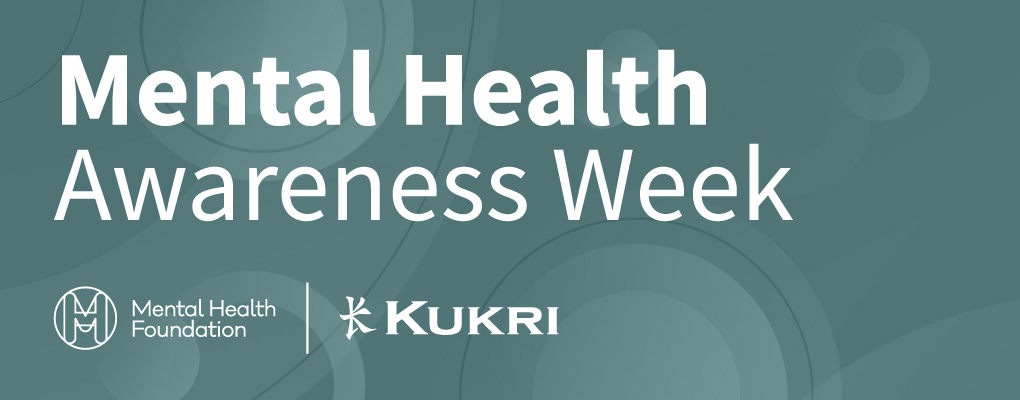Mental Health Awareness Week
May 9, 2022 | UK |
Mental health in sport is an important topic because it can have a significant impact on an athlete’s everyday life as well as their performance. There are lots of pressures associated to sport, including the need to perform and this can sometimes become overbearing.
Mental Health Awareness Week runs from 9th – 15th May 2022 – the theme for this year is ‘Loneliness’. Throughout the week we will be sharing tips to help you with your mental health and overall wellbeing.
This article will be updated every day throughout the week to share new tips.
Tip 1 – Get better sleep.
Getting high quality sleep can sometimes be difficult, but it is very important to help our bodies and minds process, heal and recover from the day. It is an essential building block for good mental health and wellbeing. The quality of sleep is important as well as the number of hours we get.
To improve your sleep:
– Try and not ‘nap’ through the day, keep your mind and body active and get outside to have some fresh air.
– If you are finding it difficult to sleep because you aren’t tired, try to avoid clock watching. This can encourage your mind to believe that this is the time you should be waking up and create an unhelpful pattern. Get up for a few minutes and have a drink before you try to go to sleep again.
– Create a bedtime routine. It’s important to limit screen time before bed as well as physical activity and work. Try to do something relaxing for the hour you have before bed. This includes reading, journaling, or listening to relaxing music.
Tip 2 – Understand and manage feelings.
An important step in improving your mental health is understanding your feelings and learning coping methods to deal with difficult feelings. Practicing mindfulness is key, which is the skill of simply noticing them and letting them pass through your mind and not getting caught up with them.
Here are some useful tips:
– Think about what makes you feel calm. Explore what helps you to respond to difficult emotions. Sometimes this can be about trial and error to find ways to manage our emotions. This can be different for everyone.
– It’s important to talk to someone. As the saying goes, ‘A problem shared is a problem halved.’ Talking to someone can change your perspective on the situation and potentially help you to deal with the issue in a healthier way
– None of us are superhuman, so remember to ask for help when you need it. Reach out to friends, family or a professional if you find your emotions are becoming too difficult for you to cope with.
Tip 3 – Look forward to something
When you plan and have something fun and exciting to look forward to, you’ll feel better.
As well as having regular activities you enjoy, try to schedule plans to help you in times of stress.
Here are some further tips to help build in moments to look forward to: Set time aside each week to do an activity you enjoy, this is often something you are good at. A sense of achievement can boost your confidence and self-esteem, which are linked to positive mental health.
– Trying something new is a good idea and is also shown to improve your mental health.
– Start off by doing things that bring you joy, that you can look forward to, for 5 minutes a day.
Tip 4 – Have a healthy diet
What we eat can impact how we feel mentally as well as physically. Making sure you are eating a balanced, healthy diet is important for our development from a young age. It is also important to eat food that gives you a steady amount of energy throughout the day, rather than in short bursts.
Here are some tips to help with connecting our diet with our mental health:
– Try to be balanced, make sure to eat a variety of different food in the right portions and across the different food groups. Try to reduce stimulants like energy drinks as these can increase anxiety and impact the amount of sleep you get.
– Notice how foods and drinks make you feel. Both can impact how our brain functions due to the chemicals contained in them.
– Check in with your gut. Research has shown that our gut can react with how we’re feeling. It can speed up or slow down when we are stressed. Try to include fruit and vegetables, as well as probiotics, to help with this.
– Sharing meal time with other people can also help. There are psychological, biological, and social benefits to this, and it can also give us a sense of regularity and rhythm in our lives.
Tip 5 – Be physically active
Even a short 10-minute walk can increase our self-esteem and reduce stress and anxiety. It plays a role in preventing the development of mental health problems and improves quality of life.
Tips to help you get started:
– Make physical activity a part of daily life. Start by making small changes to your routine, such as taking the stairs instead of the lift.
– Start slowly, build up your physical ability and gradually increase the amount of exercise you do.
– Set goals to measure your progress and help with your motivation.
There are several different ways to get help. Here are a few resources you can utilise if you are struggling. Remember you are not alone and getting help is incredibly brave.
- – The Samaritans offer emotional support 24 hours a day – in full confidence. Call 116 123 – it’s FREE
- – For support in a crisis, Text Shout to 85258.
- – Call the Mind infoline on 0300 123 3393

Our nominated charity for 2022 is Sporting Minds UK, who provide support for young athletes who compete at all levels, through their fully funded support service with BUPA and is dedicated to the mission of encouraging more young athletes to seek professional, medical treatment when facing mental health issues. As well as this, they are working to create a network and community where representative young athletes can be open and honest about their mental health and have a greater awareness for their peers’ mental health.
For more information on this fantastic charity and the work that they do visit: www.sportingmindsuk.org
To make a donation to help fund this valuable work please visit: https://www.justgiving.com/sportingmindsuk



